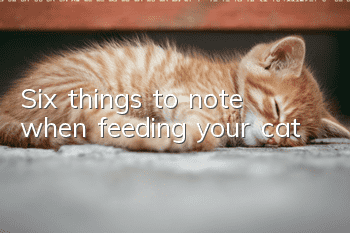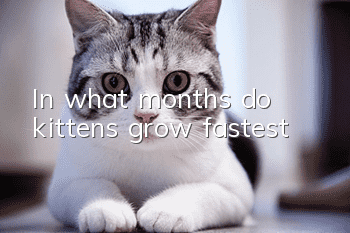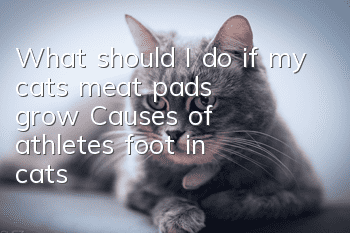Six things to note when feeding your cat

Parents who raise cats, especially novice parents, should pay great attention to their cats’ diet. There are many things that need to be paid attention to when feeding cats. If possible, it is best to choose safe and healthy natural food for cat food. Ordinary commercial food, especially domestic low-end cat food, has very poor raw materials. Long-term consumption will seriously affect the health of cats.
Cats are carnivores, and cat food can only be said to be nutritious biscuits for cats. Cats that use cat food for a long time are generally in a semi-dehydrated state. Occasional meat snacks, canned food, and boiled chicken breasts are not good for cats. It is very beneficial for cats, and it can also be mixed with some nutritional creams and calcium tablets. Cats will only feel full after eating grain starch foods, which are difficult to digest and absorb, so they should be fed less.
Six things to note when feeding cats
1. The cat’s food plate must be used permanently and cannot be replaced casually. Cats are very sensitive to changes in food trays and sometimes refuse to eat because the food trays are changed. Keep food dishes clean. Feed cats fresh or cooked food. If possible, try to prepare a slightly higher bowl, which can effectively protect the cat's cervical spine and prevent cervical spine diseases caused by long-term head hanging down when eating.
2. Feeding should be done at a fixed time and in a quiet environment with no odor around.
3. Prevent cats from using claw hooks to take food or take food out of the food plate to eat.
4. Cats like to eat warm food. Cold food and cold food not only affect the cat's appetite, but can also easily cause digestive disorders.
5. Although cats don’t drink much water, they must have enough clean drinking water. Insist on changing the water every day. It is best to separate the water bowl and rice bowl, because cats don’t like to smell food when they drink water.
6. Pay attention to the cat’s appetite at any time. There are many reasons that affect a cat’s appetite, including feed, environment and disease. If the cat's food is single and stale, or the smell, concentration, and taste of the food are not to their liking, the cat will refuse to eat. In addition, strong light, noise, the presence of strangers or interference from other animals can affect the cat's appetite. If these two factors have improved, but the cat's appetite is still not improving, it may be that the cat is sick, and you should ask a veterinarian for diagnosis and treatment in time.
- What should you pay attention to when your Ragdoll cat arrives at its new home?
- How soon can a cat take a bath after external deworming?
- Can a cat be saved after eating a dead mouse and getting poisoned?
- How long does it take for a cat to receive its first dose of Miao Sanduo?
- How does the pH value of cat urine affect cat health?
- Why does a cat have blood in its poop?
- What's going on with my cat's paw pads peeling?
- Will neutered cats run around? What are the benefits of neutering cats?
- How to read a cat's body language?
- What to do if a leopard cat suffers from postpartum hemorrhage



